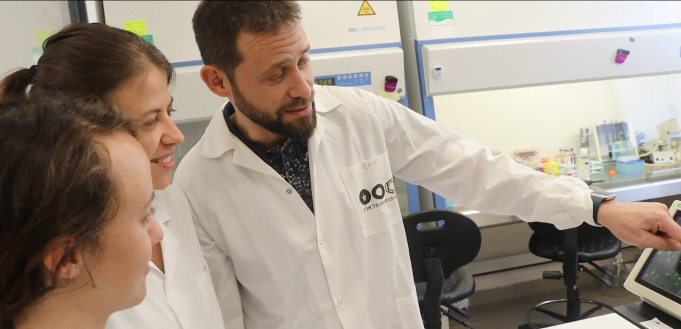A groundbreaking study at Tel Aviv University successfully eradicated glioblastoma, a highly lethal type of brain cancer. Researchers achieved this outcome in animals by eliminating astrocytes, star-shaped cells in the brain that support normal brain function, and by inhibiting their functions.
This follows the researchers’ discovery that astrocytes support tumor growth and survival when exposed to glioblastoma.
Glioblastoma is the most common brain cancer, with around 12,000 cases diagnosed in the US every year. All glioblastomas are grade 4 brain tumors, the most aggressive kind, and have one of the lowest survival rates, at just over a year.
The researchers compared astrocytes from healthy brains to those from brains with tumors, and found that their behavior changed when they were exposed to glioblastomas. In the presence of tumors, astrocytes ‘persuade’ immune cells they have summoned to change sides and support the tumor instead of attacking it, protecting it and helping it grow.
Astrocytes were also found to support tumors by giving them access to energy. Cancer cells need a lot of energy to divide rapidly, and they receive this energy from the cholesterol produced in the brain, which is usually supplied by astrocytes to neurons and other brain cells.
The researchers tested their hypotheses on animals with glioblastoma tumors, and glioblastoma samples taken from human patients. They engineered the astrocytes near the tumor to stop expressing a specific protein that transports cholesterol (ABCA1). With no access to this source of energy, the tumor ‘starved’ to death in just a few days.
Animals with cancer and a regular presence of astrocytes died within 4-5 weeks. But those that were treated had the cancer disappear within days, and all of them survived.
Sign up for our free weekly newsletter
SubscribeThe study took place under the supervision of Dr. Lior Mayo of the Shmunis School of Biomedicine and Cancer Research and the Sagol School of Neuroscience.
“Currently, tools to eliminate the astrocytes surrounding the tumor are available in animal models, but not in humans,”’ said Dr. Mayo.
“The challenge now is to develop drugs that target the specific processes in the astrocytes that promote tumor growth.
“Alternately, existing drugs may be repurposed to inhibit mechanisms identified in this study. We think that the conceptual breakthroughs provided by this study will accelerate success in the fight against glioblastoma.
“We hope that our findings will serve as a basis for the development of effective treatments for this deadly brain cancer and other types of brain tumors.”
The results were published in the scientific journal Brain.
Related posts

Israeli AI Safety Tool Among TIME’S Best Inventions For 2024

TAU Team Discovers Mechanism To Eliminate Cancerous Tumors

Ashdod Port Investing In Startups As Part Of Innovation Strategy




Facebook comments